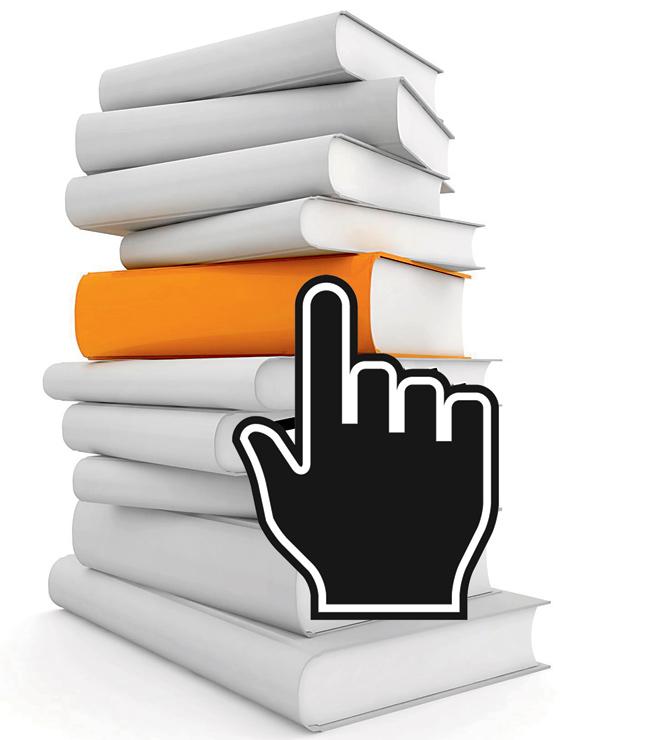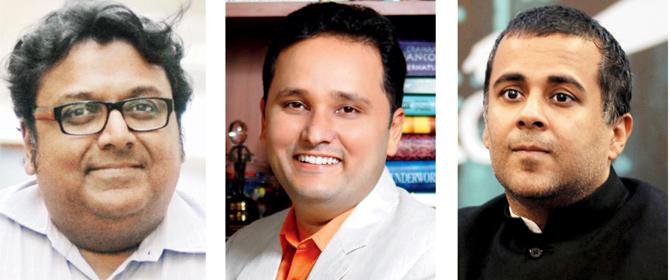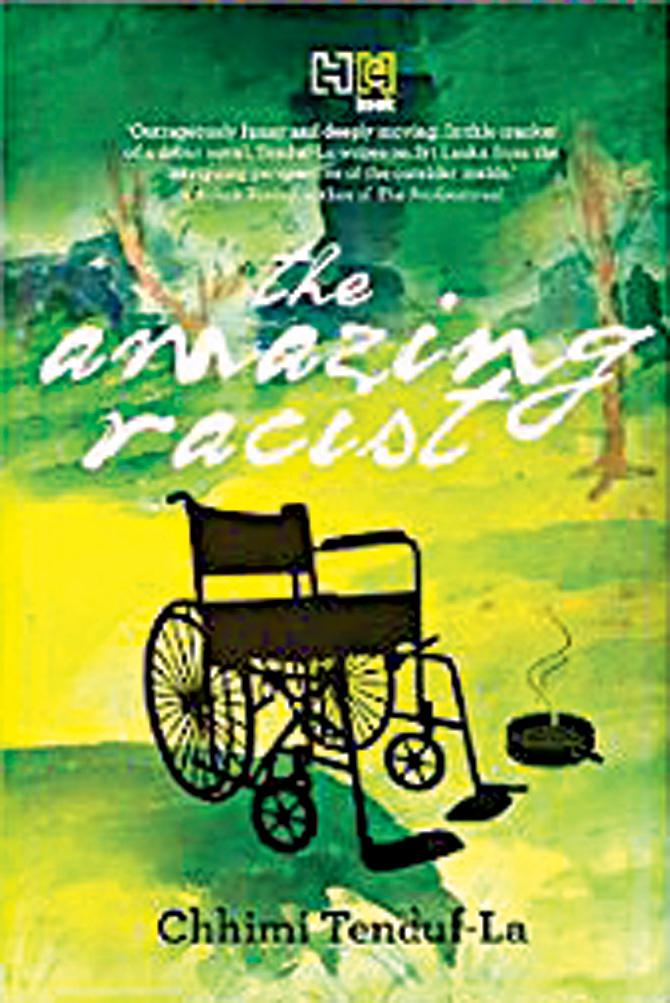Slowly, the literary agent is emerging as a key player in India's publishing industry. By bringing in bright talent and good manuscripts to the table, this vital cog is being taken seriously by publishers and authors alike

(L-R) Ashwin Sanghi and Amish Tripathiu00c3u0083u00c2u00a2u00c3u0082u00c2u0080u00c3u0082u00c2u0099s titles are being optioned for TV shows or movies. Chetan Bhagat ushered in mass market books.
When Falguni Kothari wrote her first book, It’s Your Move, Wordfreak, she submitted the book to many Indian publishers. She heard from Rupa & Co in a month’s time, and it took another five months for the contract to materialise. Waiting to board her flight, literary agent Mita Kapur picked up Kothari’s book at the airport, contacted her, and sold her new book, Bootie and the Beast to Harlequin. Kothari loved the experience, “Once Mita was handling my book, I could focus on writing.”

Literary agents aren’t new to India. US and UK-based agents represent bestselling Indian authors like Salman Rushdie, Suketu Mehta, Amitav Ghosh and Aatish Taseer. This makes them famous on the global literary market. Often, agents engineer large advances via auctions and bidding wars (Aravind Adiga’s book, The White Tiger had a heated bid on it).
The right writer
Yet, the tribe of homegrown Indian literary agents is growing. A cursory look at Kapur (Siyahi), Kanishka Gupta (Writer’s Side), Anuj Bahri (Red Ink), Jayapriya Vasudevan (Jacaranda) and Urmila Dasgupta (Purple Folio) reveals that they have been active in seeking authors and in finding homes for their books. Writer’s Side has placed over 300 books in five years and has a 90% success rate. At Rs 5 crores, Anuj Bahri managed one of the largest payouts for Amish Tripathi’s next series on Lord Ram.
Ravi Singh of Speaking Tiger isn’t convinced that a good author needs an agent to find a publisher in India. Yet, the number of agented manuscripts finding homes with publishers is rising. Milee Ashwarya, editorial director, Ebury India and Random Business at Random House says, “A bulk of our books are either commissioned or selected by our editors through the submissions we receive. This has increased exponentially. On any given day, we get 40-60 unsolicited manuscripts. We try to do justice to them all, but quality can vary. In such cases a well presented, agented script gets attention.”

Global vs local
In the US, the literary agent is the gatekeeper to the publishers, and is a tough cookie to crack. Authors labour over the query letter that will appeal to literary agents and pitch manuscripts to them in writer conferences. The literary agents expect a perfect copy-edited manuscript to even decide if they will accept a book or not. In comparison, Indian literary agents handhold before manuscripts are ready for submission. Gupta says, “If I like the concept, I might advise on rewriting the story to make the storytelling better.”

(L-R) Ashwin Sanghi and Amish Tripathi’s titles are being optioned for TV shows or movies. Chetan Bhagat ushered in massmarket books.
In the last decade, Chetan Bhagat’s success has brought rapid changes in an industry that till then was driven by the ‘literary’ lineage of Salman Rushdie, Amitav Ghosh and Arundhati Roy. The era of mass market books brought in new genres of college romances, crime thrillers and chick literature. Historical, mythological and religion based fiction also gained traction. Kapoor explains, “Publishers are open to experimenting with genres. Debut authors getting platforms that help us find good homes for their books.”

Debut authors like Chhimi Tenduf-La who wrote The Amazing Racist would have gone unnoticed if not for a literary agent
Debut matters
The rise in publishing imprints and new publishers has made it difficult for debut authors, and even established ones to navigate the system. Chhimi Tenduf-La, whose The Amazing Racist was placed with Hachette by Gupta, affirms, “I wouldn’t have been published without Gupta. He got multiple offers and negotiated for me. An author who wrote one of the best books I have read couldn’t get published in India initially, because he didn’t go through an agent.” Kapoor agrees, “Authors in India are now realising that having an agent facilitates a lot of processes and dealing with publishers; the nitty-gritty of contracts and royalty statements, promotion plans and follow-ups are not for all.”
Indian literary agents are gaining traction with authors and publishers. Gupta has been in the business for less than a decade, and most of his authors are via referrals of clients and through direct submissions. He is the only acting agent of Writer’s Side and runs a tight ship, yet a dozen editors work with him to critique and edit the manuscripts. Kapur is a familiar name in literary circles and works on various literary festivals. Bahri runs Delhi’s famous Bahrisons bookstore in Khan Market, and has great insight on readers choices. He selects books as a literary agent with this knowledge of the market. Indian literary agents have also partnered with global agencies to sell rights in different territories.
Quality to the core
According to Amish Raj Mulmi, commissioning editor at Hachette, “Most major publishers in the West and here (including us) have begun to not accept unsolicited submissions. Literary agents will continue to provide that extra dose of quality that may take a mid-list literary fiction to becoming a solid narrative that captures the imagination.”
Yet, the payback doesn’t nearly justify being in the business. Kapur explains, “It’s difficult to run an agency since we don’t have a running monthly income — there is no revenue model and surviving on commissions is impossible.”
Indian publishers actively seek new authors on their own as well, and sometimes, from the same landscape that the agent does. Both scan social media, literary festivals, even self/indie publishing to discover a worthwhile author. Gupta rues, “Why would a writer want to route his/her book through me when Chiki Sarkar or VK Karthika approaches them directly? How can agenting grow in India? Sometimes, publishers call my authors directly to discuss new concepts and ideas.”
Gupta also chafes that most writers have a ‘colonial hangover’ because they think a US or UK-based agent might help them get a better deal. Ashwarya disagrees, “Indian agents work hard to understand the market and its trends, and assess what publishers want fairly well. They present us with well-edited manuscripts and we take their submissions seriously.” Singh adds, “It’s as easy or difficult as working with an agency whether it is Indian, British or American. What matters, really, is the sensitivity, professionalism and integrity of the agents rather than their nationality.”
Figure it
40-60 unsolicited manuscripts received in a day (at Random House)
$50,000 Auction price to HarperCollins for Tarun Tejpal’s book, The Story of My Assassins
 Subscribe today by clicking the link and stay updated with the latest news!" Click here!
Subscribe today by clicking the link and stay updated with the latest news!" Click here!









